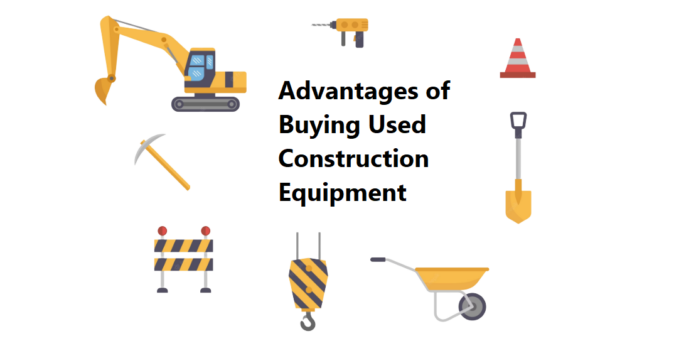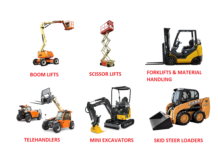When it comes to equipping a construction business with the necessary machinery, the decision to buy new or used equipment is a significant consideration. While new equipment may come with the allure of shiny appearance and advanced features, buying used construction equipment offers numerous advantages that can greatly benefit construction companies.
In this blog, we will explore the compelling reasons why buying used construction equipment is a smart and strategic choice, enabling businesses to maximize their investments and achieve long-term success.
Cost Savings
One of the most prominent advantages of buying used construction equipment is cost savings.
Used machinery is typically priced significantly lower than new equipment, making it a more budget-friendly option for construction companies, especially those starting or expanding their fleet.
The upfront cost savings enable businesses to allocate resources to other essential areas such as skilled labor, training, and project execution.
Higher Return on Investment (ROI)
Used construction equipment retains a higher percentage of its original value compared to new machinery. When you buy used, you can often resell the equipment at a relatively close price to its purchase value, particularly if it is well-maintained.
This higher ROI potential allows construction companies to recover a significant portion of their investment when it’s time to upgrade or replace the equipment.
Immediate Availability
Buying new construction equipment often involves lead times, as manufacturers may need time to produce and deliver the machinery.
On the other hand, used equipment is readily available for purchase, offering immediate access to the tools you need to start your projects promptly. This quick availability translates to faster project initiation and increased productivity.
Proven Performance
Used construction equipment often comes with a track record of performance and reliability.
Past owners have already put the machinery to the test in real-world construction scenarios, giving you valuable insights into its capabilities and limitations.
By reviewing the equipment’s history, you can make informed decisions about the suitability of the machinery for your specific projects.
Reduced Depreciation Concerns
New construction equipment typically experiences significant depreciation during the first few years of ownership. With used equipment, much of the depreciation has already occurred, allowing you to avoid the steepest value declines.
This reduced depreciation concern means your investment retains its value more effectively, providing financial stability for your business.
Known Maintenance History
Used construction equipment often comes with a documented maintenance history. Previous owners may have performed regular maintenance and repairs, ensuring that the machinery is in good working condition.
By obtaining maintenance records, you gain insight into the equipment’s care, which can be invaluable for anticipating future maintenance needs and potential costs.
Greater Equipment Selection
Buying used construction equipment offers a wider selection of makes and models. Since new equipment may have limited variations, opting for used machinery expands your options, allowing you to find equipment that precisely matches your project requirements.
This flexibility enables you to build a diverse and versatile equipment fleet tailored to your construction needs.
Conclusion
Buying used construction equipment is a strategic choice that presents numerous advantages for construction companies. The cost savings, higher ROI potential, immediate availability, and proven performance of used machinery empower businesses to make the most of their investments.
Additionally, reduced depreciation concerns, known maintenance history, and a greater selection of equipment make the case for buying used even stronger. By carefully evaluating your specific needs and considering the benefits of used equipment, you can confidently build a reliable and efficient equipment fleet that drives your construction business towards long-term success.




